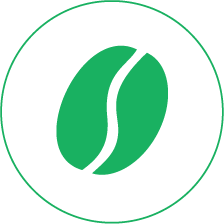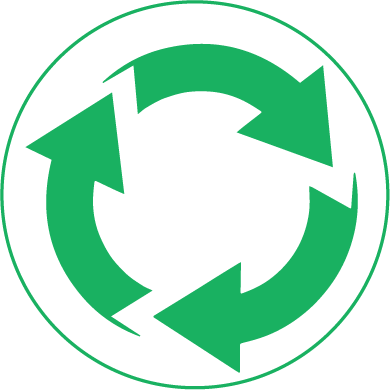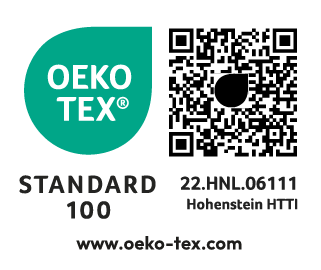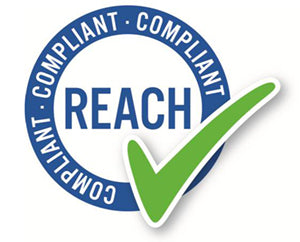Sustainability is our DNA
If you want to make a difference, you need to do things differently.
At REDMAX, we like to do things differently. We do things in a more sustainable way. Why?
Because we value our planet and the people on it. We create sportswear that’s sustainable, comfortable, and affordable.
We strive to avoid the exhaustion of natural resources in order to maintain an ecological balance. We therefore choose environmentally friendly solutions, like dope dye, recycled polyester or a natural finishing such as coffee. These natural fibers and finishes add functionalities to our garments such as UV-protection, odour-reduction, dry-coolness, anti-allergic or breathability. Why use a chemical solution? We all know, nature knows best.
used coffee grounds
We use waste products like coffee grounds to add functional features to our fabrics. These choices reduce the amount of chemicals we use and support the recycling process.
The added functional benefits of using carbonised coffee grounds are:
Dry-Cool / moisture regulation
UV protection
Odour control
Breathable


Dope Dye
We use the Dope Dye method to add colour to our products.
Dope Dye uses 90% less water than the technique used to dye cotton, and 50–60% less water when compared to other traditional dyeing methods. It reduces CO2 emissions by 60% and uses 60% less energy and chemicals.
The dope dye process has significant
eco-friendly advantages over traditional techniques:
It needs almost no water.
It produces no chemical-laden wastewater
It uses less energy.
Recycled Polyester
We promote the circular economy by using recycled and upcycled yarns made from plastic bottles or clothing that might otherwise end up as landfill.
The use of recycled polyester helps to reduce:
The “waste mountain”
Co2 emissions
Energy consumption


CSR Policy
We are a responsible partner to our suppliers and employees. We are committed to creating the best conditions for all our stakeholders by meeting the goals set out in our corporate social responsibility policy.
This policy contains four key pillars that underpin our strategy:
– Monitoring
– Quality control
– Chemical compliance
– Social circumstances
These four pillars form the main framework for implementing our CR policy. They focus on what we see as our most important CR responsibilities:
We are a responsible and sustainable company that follows the UN SDGs. We operate with care for Planet, People, and Prosperity, and we place particular emphasis on Partnerships.
We demonstrate our commitment to the manufacturers we work with by complying with our CR standards throughout the supply chain.
We promote shared responsibility.
We and our partners ensure that wages, social benefits, and working conditions are in line with local legislation and as defined by the ILO (International Labour Organisation).
We manufacture in accordance with Redmax standards and have a clear focus on continuous improvement.
WE FEEL RESPONSIBLE. WE ACT SUSTAINABLE.
We feel a high responsibility towards creating a more sustainable future for our next generations. We have defined clear goals towards creating this future.
We see a future in which natural resources are less replenished and used more effectively, human rights are respected and the increase of human
well-being is realized.
We work hard to realize this vision. We believe that we can play an important role in the necessary change of the garment producing industry. We choose sustainable resources and production processes for our brands. We ensure we comply with REACH’s, OEKO-TEX® and Amfori rules and legislation to ensure the production of our items in the most sustainable manner.
REACH (Registration Evaluation Authorization and restriction of Chemicals)
Serious problems caused by harmful substances in toys and other devices, called for a common approach and adequate legislation of goods entering the European market, years ago.
This was the start of what is now called REACH. REACH’s aim is to protect the human health and environment through better and earlier identification of the intrinsic properties of chemical substances. The REACH Regulation places responsibility on the industry to manage the risks from chemicals and to provide safety information on the substances.
Today REACH is a database where you can find information on materials that are not allowed to use in the European market.
OEKO-TEX®
Over the years not only the use of harmful substances in products has been reduced but the development of sustainable materials for sustainable clothing has increased enormously. With these developments, a need for a standard to measure arose.
OEKO-TEX® is a highly recognized institute and their STANDARD 100 label provides a standard to confirm that no harmful substances are used.
If clothes carry the STANDARD 100 label, you can be certain that every component of this article, every fabric, thread, button or other accessories, has been tested for harmful substances and that the article therefore is harmless in human ecological terms.
The test is conducted by OEKO-TEX® partner institutes, on the basis of extensive criteria which can be found on the OEKO-TEX® website. In the test they take into account numerous regulated and non-regulated substances, which may be harmful to human health. The criteria catalog is updated at least once a year and expanded with new scientific knowledge or statutory requirements
In Appendix 6 of the STANDARD 100 by OEKO-TEX®, the criteria have been made even stricter for various parameters of possible pollution. Through these extra requirements it also supports the coverage of the „ZDHC“ initiative and the „Detox Campaign“. All with the idea in mind that it is better to prevent than to cure.
These more strict requirements for substances in textile materials will result in an overall lower impact on the environment, workers and consumers.
We work with the Standard 100 by Oeko-Tex MRSL list to ensure that our products meet the highest requirements.
In addition, we only work with suppliers who also work according to this standard, and together we ensure more sustainable product use in the chain.
Amfori (BSCI)
In 2009 we joined the Business Social Compliance Initiative, as we believe in a joint approach of this matter. The general idea was that within 3 years 70% of all production units should be audited and steps were introduced to improve the social performance of our supply chain. As a group the members of BSCI developed a strong Code of Conduct with 11 major points. These range from fair remuneration to no child labour, along with a step-by-step approach that enables companies to monitor, engage, get empowered and receive support to put sustainable trade at the heart of their business.
Many retail and import companies joined BSCI, which was part of FTA (Foreign Trade Association), now the whole group has taken one name; Amfori. They want to develop a total platform in which also BEPI (Business Environmental Performance Initiative) takes part and other initiatives are invited to join.












